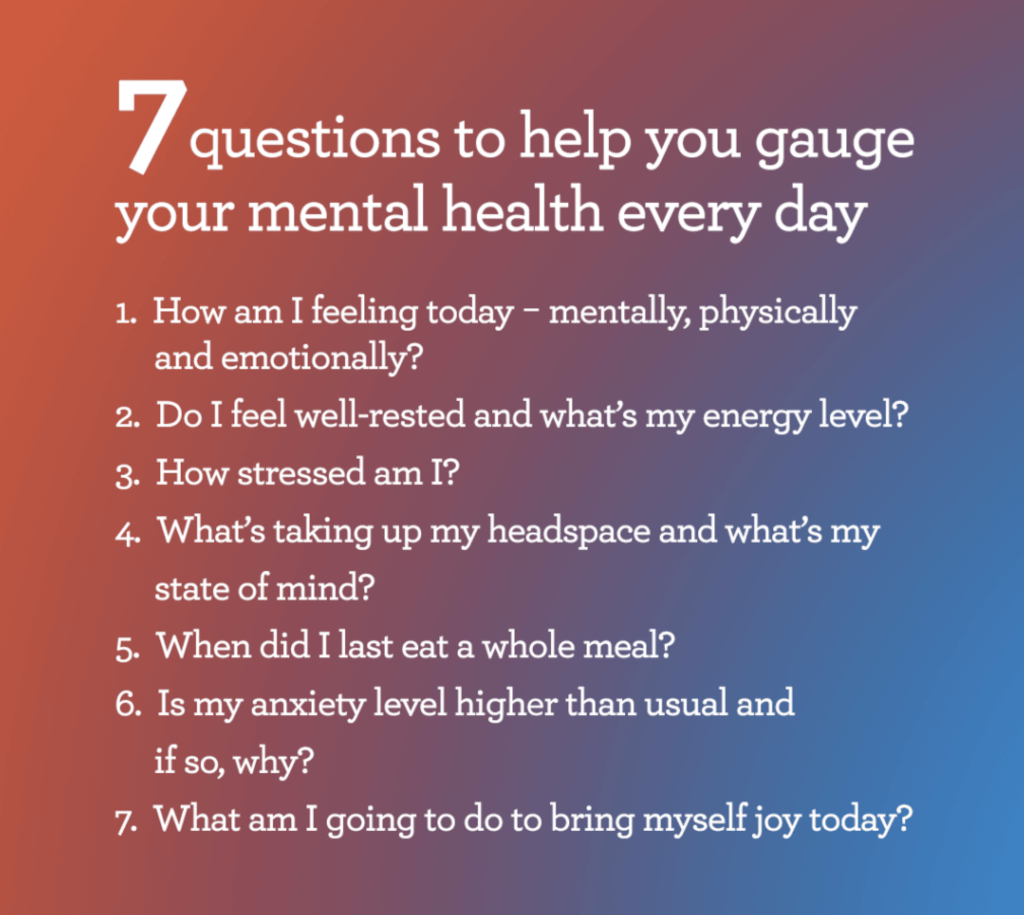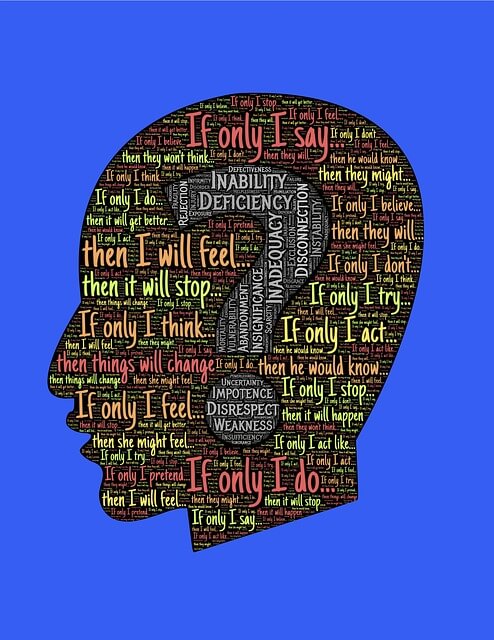Mental health should always be a priority, and it’s especially important in these challenging times filled with health concerns amidst a pandemic, economic woes, and societal upheaval.
Mental health checkups aren’t really a thing but given the rising rates of depression and anxiety (not to mention suicide), shouldn’t they be? The brain is the body’s command central. Our emotions run the show! Yet we treat our minds like they don’t matter. Here’s how to show your emotional health the attention it deserves.
Psychiatrist Gail Saltz, MD, associate professor of psychiatry at the New York-Presbyterian Hospital Weill-Cornell School of Medicine and host of the “How Can I Help?” podcast from iHeartRadio, explains, “Not many people think about preventative care when it comes to their mental health. Instead, most tend to wait until they are experiencing an acute psychological problem to seek help.”
Many people suffer from mental health issues and don’t even realize that they are being negatively impacted and could lead healthier lives. “The brain controls all of our other organs,” says Saltz. “We need to educate ourselves to recognize the symptoms of mental health issues, which are not just feelings but can also be physical issues too.”
How Do I Get My Mental Health Checked?
Caroline Leaf, PhD, is a communication pathologist, cognitive neuroscientist, and author of several books, including Cleaning Up Your Mental Mess: 5 Simple, Scientifically Proven Steps to Reduce Anxiety, Stress, and Toxic Thinking, explains it this way. “Just like we check in with friends and family and make sure they are okay, it is also important that we check in with ourselves: are we doing okay? Is there something bothering us—something we need to deal with before it takes over our mental wellbeing? If we try to suppress an issue or ignore it, it doesn’t go away and can really do a number on our health in the long term,” says Leaf.
Checking your mental health can begin with an honest, personal assessment about how you are feeling with questions such as:
- Do the activities that once brought me joy continue to bring me joy?
- Do the people that once brought me joy continue to bring me joy?
- Do I feel connected, or do I tend to stay to myself?
- Am I lonely or feeling withdrawn?
- Do I have healthy coping mechanisms?
- Do I have a sound support system of friends or family in my life?
- Am I taking care of myself (eating well, exercising, getting enough sleep)?
- Am I repeating patterns, thoughts, or behaviors that negatively impact my life?
- Do I frequently suffer from unexplained headaches or stomach issues?
- Do I have trouble sleeping at night or feel excessively tired during the day?
- Do I spend too much time on social media?
- Am I using drugs or alcohol to self-medicate?
- Do I suffer from low self-esteem?
- Do I feel anxious and is this impacting how I live my life?
Don’t be surprised to find that you have some mental health concerns. The past two years have been trauma-filled. Donna Rockwell, PsyD, clinical psychologist and past president of the Society for Humanistic Psychology, American Psychological Association, says, “Everyone has had to adjust to a new normal, so it’s not surprising that many people feel more disconnected, more anxious, and depressed than in the past.”
Even if you have been relatively fortunate, it is still reasonable to feel sad. Rockwell says, “We are empathetic beings and have all bared witness to a great deal of pain and suffering. And even if you haven’t lost someone or been sick yourself, you have still been impacted by the pandemic.”

Taking Care of Mental Health
This past year, celebrities and athletes, such as Olympic gymnast Simone Biles and tennis great Naomi Osaka, have openly discussed how important it is to take care of your mental health.
But even with increased awareness, stigma and hesitation still exist. Dr. Saltz explains, “Many people still don’t want to acknowledge that they are struggling with their mental health. They fear being labeled as ‘crazy.’ Or they berate themselves thinking that a mental health issue is a sign of weakness. They have a misguided belief that if they were stronger or more resilient, they could control it.”
Some basic ways to take care of mental health include:
- Regular exercise, preferably aerobic, for 30 minutes ( 3-4 times per week)
- Eating a healthy diet
- Meditating
- Spend time in nature
- Maintain a health support network that listens, supports, understands, and allow you to feel connected
- Practicing gratitude
- Deep breathing and progressive muscle relaxation
- Volunteering in your community
- Disconnecting from technology
Many people can also benefit from checking in with a mental health professional. Dr. Saltz says, “About one in ten people will suffer from a mental illness and mood disorders in their lifetime. If you are asking yourself, ‘Should I see someone for my mental health issues?’ the answer is ‘yes.’”
Choosing a Mental Health Professional
When it comes to choosing a mental health professional, be selective. Dr. Saltz points out that anyone can call themselves a therapist.
She explains, “‘Therapist’ is not a regulated term. It can range from someone who has taken some online courses to a clinical psychologist to a psychologist who can prescribe medication in addition to counseling.”
Therapy is not a one-size-fits-all situation. Some people are better helped with in-person counseling, while others have seen great results with teletherapy.
There are also many therapeutic practices, including talk therapy, cognitive-behavioral therapy (CBT), and dialectical behavioral therapy (DBT), each suited to different psychological issues.
When choosing a mental health professional, the connection is critical. Therapy is a partnership. Rockwell says, “The patient has the power here. Pick a therapist that is right for you that makes you feel comfortable. Interview them.” If you go a few times and it’s not clicking, move on to someone else.
That said, for therapy to be effective, the patient needs to want to make meaningful changes. “Therapy takes a lot of effort and sometimes, it won’t feel good,” says Dr. Saltz. “A therapist can’t fix things; the patient needs to be an active participant for it to work.”
What Are Smart Mental Health Goals?
Contrary to what people may believe, the goal of mental health isn’t to be happy.
It isn’t possible to be happy all the time. “We need to be comfortable feeling a spectrum of emotions,” says Rockwell, “And that includes being down sometimes. We are all going to be sad or anxious at times. Better to label the emotion and allow ourselves to admit, ‘I feel sad‘ instead of shutting down those emotions. We build resilience by sitting with those feelings and believing we will get through them.”
A smart mental health goal is to learn how to be more present in your everyday life. “Depression tends to occur when a person is upset about the past, while anxiety is about being worried about the future,” explains Rockwell. “Being mindful and focused on the present with a full heart is an attainable goal.”
Another goal is to work on ways to change behaviors or patterns that are impacting you negatively, either on your own or with the help of a mental health professional.
Some thoughts or patterns hold us back, keeping us stuck in a toxic situation. But if you find a way to see it from a different angle with a different lens, you may experience the situation differently.
Leaf explains, “For example, say you feel anxious about your future, whether you are getting married, or graduating from university or changing jobs or something else. Instead of focusing on the negative and what could go wrong, choose to see the uncertainty you are facing as exciting. Write down a list of all the great things that can happen. If you cannot think of anything, speak to someone you trust—let someone help you make that list and see how uncertainty can be a good thing.”
By reconceptualizing you may be able to turn fear into something exciting that you are looking forward to with anticipation rather than trepidation.
Dr. Saltz adds, “A mental health professional’s goal is to help patients to change negative patterns, reduce their suffering and get them back on track toward a healthier life.”

New Year, Healthier You
At the start of the new year, many people make resolutions hoping to better themselves and improve their lives in the year ahead. One of those goals might be to access mental health and commit to making changes that positively impact your emotional wellbeing. “Rather than waiting to get sick, you can do things to stay mentally healthy and become more resilient,” says Rockwell.
Having a calm mind and being present doesn’t just happen. Leaf says, “I used to start each day a little negative, thinking about how stressed I am and how much I need to get done. Now I make it a goal to start the day healthily and constructively, which includes what I’m grateful for and what I need to let go.”
Practice self-care. Be proactive about the small changes you can make each day to take care of your well-being. It can be anything from taking a warm bath, to going for a walk with a friend or limiting your “scroll time” and social media interaction. Rockwell says, “It’s about finding time to stop obsessing, stop ruminating and connect to the present.”
Taking care of your mental health takes work and commitment, but it’s worth it.

